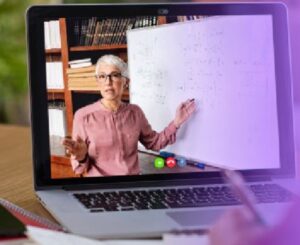Why EdTech is the future of Classroom Education
The role of classroom education has taken a new turn in the realm of education technology to support student education with active and engaging modes of learning that teach young minds to leverage the art of critical thinking in an ever-evolving digital world. With the rise of soaring technological advancements in the age of fast-information and the internet of all things, the education sector has reinvented the platform of classroom teaching to encourage schools, colleges and educational institutes to make the shift online with complete virtual access. A report by RedSeer and Omidyar Network India states that the Coronavirus pandemic has been one of the biggest game-changers for India’s Edtech sector, showing the online education offerings for Classes 1 to 12 to be increased 6.3 times by 2022, creating a $1.7 billion market.
Venturing into the surging technological development of artificial intelligence, cloud, machine learning, and virtual reality, the education sector has an enormous potential to make student learning a more interactive, engaging and holistic experience with the use of modern educational technology and digital teaching tools. Here are three major ways in which we believe Edtech is transforming the education sector to change the way students learn in the classroom and beyond.
Technologically-enhanced Education
Using technology as a tool to enhance learning and improve student performance can bring drastic changes to the education sector on the whole. With the right use of technology in the classroom, learning can go beyond the bounds of the traditional textbook to build a healthy learning curve that fuels curiosity and a sense of wonder in the children. Dedicated virtual, metrics and AI tools in smart classrooms can help teachers leverage the new age technology to empower student learning with valuable insights to improve performance. At SNIS Day cum Boarding International School, Bangalore, we provide our students with a sprawling 60-acre green campus with secure WiFi support and a state-of-the-art infrastructure that is conducive to the technologically-enhanced student education in the digital age.
Interactive learning techniques
Technologically charged methods of classroom teaching can make student education more about grasping new concepts with an in-depth understanding and less about memorizing those concepts. At the same time, new learning techniques like gamification and virtual reality tools make student education more interactive and engaging to foster a more enthusiastic response to learning and developing cognitive and psychomotor skills. Research has also shown that VR tools are more effective in helping students recalling key information than traditional textbook learning. At SNIS Day cum Boarding International School, Bangalore, the school facilities are technologically equipped with Smart classrooms, iPads, computers, digital library to leverage IT integration into the curriculum. Each student classroom is also equipped with projectors for sharing, exchange and presentations to enhance the students’ research and collaboration skills.
Self-paced Learning
Education coupled with the right technological tools can also personalise the learning curve of the students to suit their learning abilities and improve performance with adaptive competency-based learning. AI tools today can assist in building a personalised study chat to track their progress based on their learning history and making key recommendations on their future career options. The new age learning tools can also analyse student data to aid teachers in setting individual goals for the students to benefit with self-paced learning and make real progress based on real-time data.





